Your cart is currently empty!

Food: The fuel and recovery tool for exercise
—
by
Nutrition plays such an important role in how our bodies feel and function. Not only do our food choices contribute to our overall health, but they also affect our physical performance during activities and our ability to recover. In this article I’ll provide guidelines for structuring your food choices, discuss essential nutrients found in food, as well as describe the specific nutritional needs before, during, and after exercise — so you’ll know what foods to eat to fuel and recover properly.
Food is more than just calories,
and learning about nutrition isn’t just for weight loss.
General Nutritional Guidelines
- Focus on nutrient-dense, whole-foods and include a combination of fruits, vegetables, complex carbohydrates, quality proteins, and healthy fats.
- Limit the amount of highly processed foods, added sugars, and saturated fat.
You may have heard the term “macros” (short for macronutrients). Macronutrients are protein, carbohydrate, and fat. These are key nutrients that your body requires, in relatively large quantities, in order to run optimally. Micronutrients, on the other hand, are the vitamins and minerals that your body also needs, but in smaller amounts.
Your nutritional needs may vary based on your age, gender, activity level, and other health conditions. However, there are Recommended Dietary Allowances (RDA) for macro- and micronutrients. RDA is defined as “the average daily dietary intake level that is sufficient to meet the nutrient requirements of nearly all (97 to 98%) healthy individuals”2.
Protein
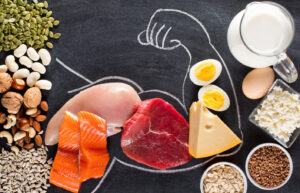
Protein helps repair and build — it’s the building block for muscles and all the tissues in your body. It’s vital for maintaining muscle and physical function, which is especially important as we age. (I’ll dive deeper into the topic of age-related muscle loss in a future article.)
The RDA for protein intake is 0.8 grams per kilogram of body weight for those 19+ years old2,3. However, research suggests that protein requirements may be higher (1-1.2 grams per kilograms per body weight1,4) in older adults.
FOOD SOURCES:
Meat, poultry, fish, eggs, legumes, cheese, yogurt, milk, soy
Carbohydrates
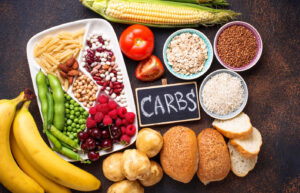
Carbohydrates (aka “carbs”) provide your body with energy and fuel for activities. Your body breaks down carbohydrates into glucose (a form of sugar) that gets stored within your muscles and liver to be used for energy.
There are specific RDAs for carbohydrates, however there’s allowance for leeway and special considerations for those who have certain metabolic disorders and/or cardiovascular risk factors2.
FOOD SOURCES:
Grains (oats, rice, wheat, barley, etc) and products that are made from grains (bread, pasta, cereals, crackers, baked goods), fruits, vegetables, dairy products, and sugar (all forms)
Learn more:
How to choose “healthy” carbs
What are complex carbs?
Fats
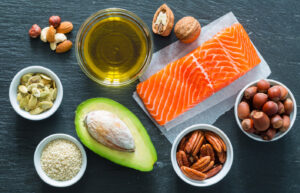
Fat is also an energy/fuel source, and it’s essential to helping your hormone and neurological systems run smoothly.
Carbohydrates and protein should provide the bulk of your recommended daily caloric needs, and the small remainder (<10% of daily total calories2,3) should come from fat.
FOOD SOURCES:
Oils, seeds, nuts, dairy products, animal fat
Learn more:
How to choose “healthy” fats
Micronutrients
Most experts agree that the best way to get necessary vitamins and minerals to meet your micronutrient requirements is by eating a diet that contains a wide variety of foods. If you’re concerned that you might not be getting enough nutrients through your diet, you can consult with you healthcare provider or a registered nutritionist to find out if supplementation is needed.
What to eat before, during, & after exercise
Proper nutrition is what fuels your activities, and it provides the building blocks needed to repair and rebuild bodily tissues. What you eat before, during and after exercise largely depends on the duration, intensity, and type of activity.

Before:
It may take some experimentation to dial in the right macro combination and timing that works best for you and the activity you are performing.
A complex carbohydrate (versus a highly processed/refined carbohydrate) paired with a protein and/or healthy fat is the best way to level out blood glucose levels and provide the nutrients and energy stores the body needs to perform an activity.
Protein, fat, and high-fiber foods take longer to digest, which helps keep you satiated longer. However, to minimize gastrointestinal distress you may not want to consume large amounts immediately before an activity.
During:
Depending on the duration and/or intensity of the exercise, you may need to provide your body with additional nutrients and energy during the activity.
If your activity is less than one hour and/or very low-intensity, you probably won’t need additional fuel. For longer duration (endurance) activities, you may need to refuel with a carbohydrate-predominant snack during the exercise in order to replenish your muscle cells with energy (glycogen) and to maintain optimal blood glucose levels.
Something else to consider, is learning how to stay within your aerobic zone during endurance activities. This will use your body’s fat stores as the primarily fuel source, allowing you to go longer before needing replenishment. (Learn more about the benefits of aerobic zone training in this article here.)
After:
The two main goals of post-exercise nourishment is to 1) help facilitate muscle repair 2) replenish glycogen stores. This can be accomplished by consuming a post-exercise meal/snack that consists of both a protein and carbohydrate to aid in recovery.
Muscle fibers are broken down during exercise so you’ll want to give your body the key nutrient (protein) to properly repair and rebuild. Muscle protein synthesis is how the body builds and maintains muscle. During this process beneficial changes occur — your body adapts, improves, and becomes stronger.
Also, during exercise your muscles use up their stored energy (glycogen). The carbohydrate that you consume after exercise will help replenish your fatigued muscles and restore depleted glycogen.
The ratio of carbohydrates to protein will largely depend on the duration, intensity, and type of activity. In general, higher volume and intensity exercise, the greater the need for carbohydrates. For exercise that involves strength training, protein becomes the focus.
Hydration
The goal is to drink just the right amount of water to maintain your body’s fluid balance and prevent dehydration.
If the activity lasts longer than a couple hours, is very intense, and/or sweating is excessive, then you might consider an electrolyte (sodium and potassium) containing sports beverage. Most sports drink also contain carbohydrates/sugar which will aid in glycogen replenishment as well.
Additional Resources:
Dietary Guideline for Americans www.dietaryguidelines.gov
The USDA MyPlate https://www.myplate.gov
If you are looking a more detailed and tailored plan (especially if you’re goal is significant weight loss, want to address a metabolic issue, or you’re a competitive athlete wanting to optimize performance), then I suggest that you work with a registered dietician and/or nutritionist. They can create a personalized meal plan that will work best for you and your individual needs and goals.
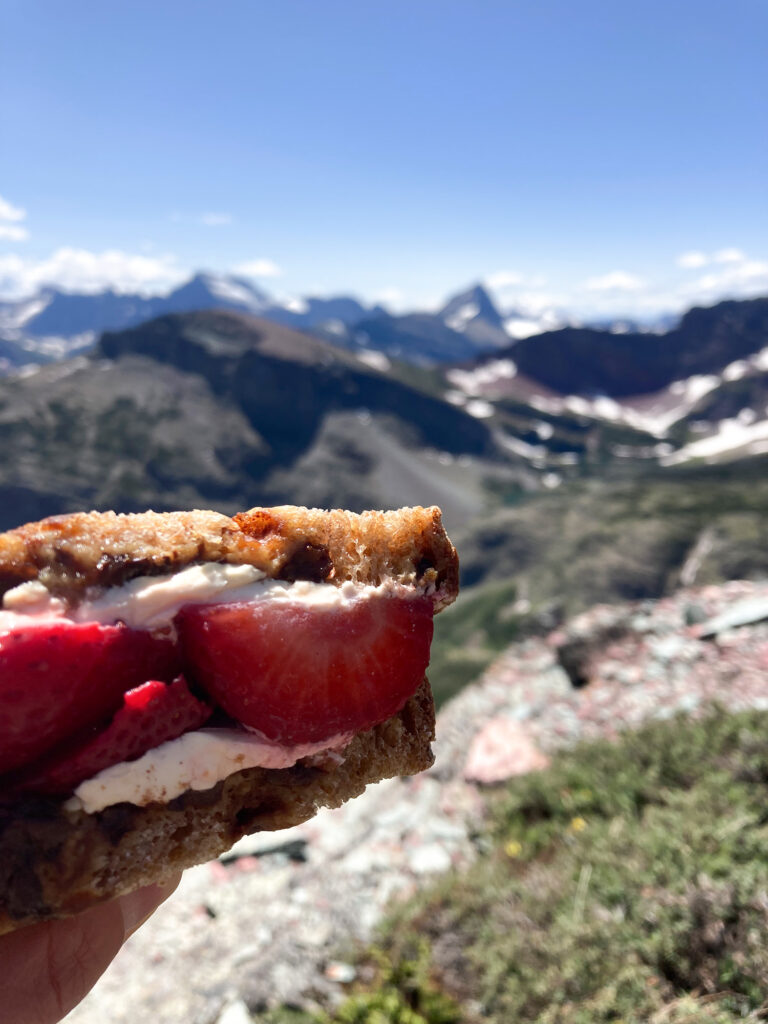
I hope you found this information helpful for making the right food choices to accompany your fitness journey, while preparing your next pre-workout snack, and when refueling your body after a long day on a hiking trail.
Stay tuned as I plan to share some of MY favorite foods and snacks that I eat to fuel my training exercises and my adventures on the trail.
Pictured here was a 5 a.m. kitchen experiment that turned out to be delicious on the trail! Cream cheese and fresh strawberries sandwiched between homemade cinnamon raisin sourdough bread. ![]() Knowing that I had this scrumptious snack in my pack helped me get through the first 3,000 vert, and then powered me through the next 1,000 to the top of Apikuni Mountain in Glacier National Park.
Knowing that I had this scrumptious snack in my pack helped me get through the first 3,000 vert, and then powered me through the next 1,000 to the top of Apikuni Mountain in Glacier National Park.
Leave a comment below and tell me some of your favorite trail or post-workout snacks.
Kristen, CPT and creator of the HIKE-ABILITY Training Program
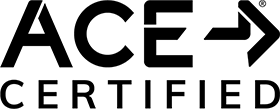
Disclaimer: All information, content, and material (including associated text, videos, and links) on this website is provided in good faith and is for informational and educational purposes only. It is not intended to serve as a substitute for the consultation, diagnosis, and/or medical treatment of a qualified physician or healthcare provider. All exercise has inherent risks. Before beginning any type of exercise, please consult your health care provider.
scope of practice
As a certified personal trainer/fitness coach there are limitations on what kind of nutritional advice I can give. Within my “scope of practice” I can help educate you on the importance and value of making proper food choices and provide general nutritional guidelines. However, please recognize that I can not provide personalized nutritional plans, assess your nutritional status, or give nutritional advice to address specific medical issues. The content on this site should not be used as a substitute for medical advice from your healthcare provider.
REFERENCES:
- Bauer J, Biolo G, Cederholm T, et al. Evidence-based recommendations for optimal dietary protein intake in older people: a position paper from the PROT-AGE Study Group. Journal of the American Medical Directors Association. 2013 Aug 1;14(8):542-59.
- FoodData Central. U.S. Department of Agriculture, accessed January 2023 <https://fdc.nal.usda.gov/>.
- The Food and Nutrition Service U.S. Department of Agriculture, accessed January 2023 <https://www.fns.usda.gov>.
- The National Resource Center on Nutrition and Aging. Katie Dodd, MS, RDN, CSG, LD, FAND. Nutrition needs for older adults: protein. Updated Feb 14, 2020, accessed January 2023 <https://acl.gov/sites/default/files/nutrition/Nutrition-Needs_Protein_FINAL-2.18.20_508.pdf>




Leave a Reply